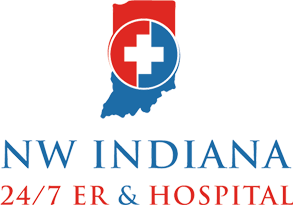September is Newborn Screening Awareness Month!
As exciting as becoming a new parent is, the preparation can be overwhelming. It’s hard to sift through all the advice and information out there for those expecting. That’s why we’re utilizing Newborn Screening Awareness Month to educate soon-to-be moms and dads about the importance of infant health screens.
What it is
Newborn screening is a state public health service that screens for specific health conditions in infants. Newborns typically get tested within days of their birth while they’re still at the hospital.
Newborn screening began in the 1960s when a blood test was developed that could detect the presence of phenylketonuria, an inherited disorder. Since then, scientists have developed tests that screen for more than 60 disorders and conditions and have been testing newborns for over 50 years.
Newborn screening is made up of three parts:
- Heel Stick: A baby’s heel is pricked to collect a blood sample. It’s best to perform this when the baby is 24-48 hours old, as certain conditions may not show up in their blood until 24 hours after birth.
- Pulse Oximetry: A painless test that measures the level of oxygen in the blood to help detect heart conditions.
- Hearing Test: This test detects the brain’s ability to hear and respond to sounds.
The most valuable benefit of newborn screening is how it allows doctors to start treatment immediately if a serious health condition is detected. Detecting health issues early in a baby’s life allows families to process the news, become informed, and be proactive as soon as possible.
What to expect
Each state’s standard newborn health screen varies in the number and types of conditions tested. Most states test for 31 of the 35 conditions recommended by the Advisory Committee on Heritable Disorders in Newborns and Children. Although the 35 conditions recommended are rare, they are found through screening in over 5,000 babies every year.
Because screening is a public health service, each state’s public health department determines the requirements and restrictions.
Individual state screening factors include:
- The state’s laws
- The financial cost of screening
- Frequency of the condition in that state
- Treatment availability and follow-up for each condition
- Newborn screening program funding
Find your state’s newborn screening information here!
Spread the word
Baby’s First Test is a newborn screening education center that provides information and resources to families and providers. For years, they have celebrated Newborn Screening Awareness Month by creating a community for parents to learn more and share their experiences.
To raise awareness about newborn screening, you can share your story on social media with the hashtag #2021NBS, or submit it to the Baby’s First Test website on the “Family Experiences” page. By searching #2021NBS on Facebook, Instagram, and Twitter, you can read hundreds of stories from parents across the world.
This September, we remind parents of the importance of staying informed about their baby’s health. And if medical issues ever arise, rest assured we are here for your family. Our facility stays operating 24/7, 365 days a year, and our highly-trained staff members are equipped to handle any medical emergency and all ages. From infants to elderly folks, we have the whole family covered!



0 Comments